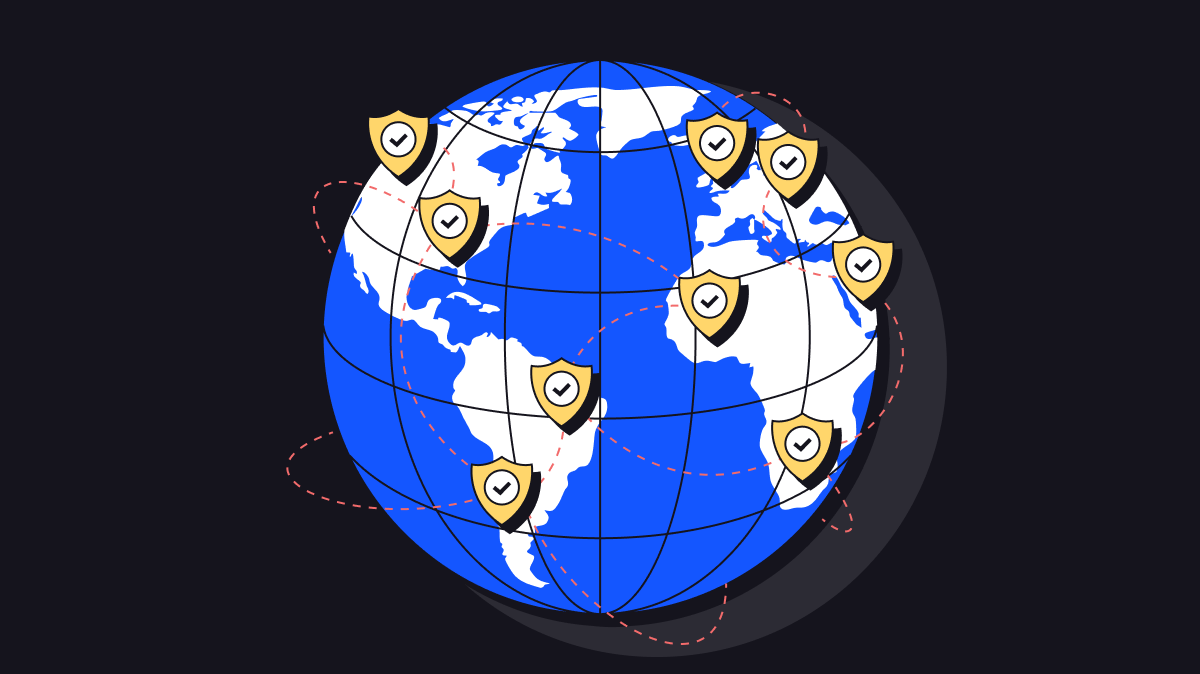Data Sovereignty in Test Data Management: Why It Matters and How to Protect Your Business
Data sovereignty has evolved from a niche compliance concern into a critical business imperative. For organizations managing sensitive customer information, financial records, and proprietary business data, the question of where data resides and who controls it has become central to technology procurement decisions.
This shift is particularly acute in test data management (TDM), where production data—often containing real customer information—must be replicated, masked, and distributed across development and testing environments. Understanding data sovereignty and selecting solutions that respect these boundaries is no longer optional for enterprise buyers.
What Is Data Sovereignty?
Data sovereignty refers to the concept that data is subject to the laws and regulations of the country or region where it physically resides. It encompasses both the legal framework governing data and the practical ability of an organization to maintain control over its information assets.
In practice, data sovereignty means ensuring that:
- Data remains within specified geographic boundaries to comply with local regulations
- Organizations maintain direct control over who accesses their data
- Data processing occurs within approved jurisdictions
- Third parties cannot access or process data without explicit authorization
Regulations like GDPR in Europe, CCPA in California, and emerging frameworks across Asia-Pacific and Latin America have made data sovereignty a legal requirement, not just a best practice. Non-compliance can result in substantial fines, legal liability, and reputational damage.
Why Data Sovereignty Matters for TDM Buyers
Test data management presents unique sovereignty challenges. Development and testing environments require realistic data to ensure software quality, yet these environments are often less secure than production systems and may involve external vendors, offshore teams, or cloud infrastructure.
Regulatory Compliance Requirements
Organizations in regulated industries—financial services, healthcare, telecommunications—face stringent requirements about where data can be processed and stored. A TDM solution that transfers data to external clouds or third-party processors can immediately create compliance violations, regardless of how well it performs its core functions.
Risk of Data Breaches
Every external transfer point represents a potential vulnerability. When test data moves outside your network perimeter to be processed by third-party services, you multiply the attack surface. Data breaches involving test environments have become increasingly common as attackers recognize these systems often have weaker security controls than production.
Loss of Control
Traditional cloud-based TDM solutions often require uploading production data to vendor-managed platforms for processing. This creates a fundamental loss of control—you're trusting a third party with your most sensitive assets, often with limited visibility into their security practices, who has access, or how the data is ultimately handled.
Third-Party AI Processing Concerns
The rise of AI-powered data tools has introduced a new sovereignty challenge. Many modern platforms leverage large language models and cloud-based machine learning services to process data. This means your sensitive information may be sent to external AI providers, potentially used to train models, or stored in ways that violate your data governance policies.
How Synthesized Addresses Data Sovereignty
Synthesized was built with data sovereignty as a foundational design principle. Our approach ensures that TDM buyers can leverage advanced AI-powered test data generation while maintaining complete control over their data.
Private Cloud and On-Premises Deployment
Synthesized deploys entirely within your infrastructure, whether on private cloud or on-premises environments. The platform operates in an airgapped configuration, meaning your data never leaves your network or ecosystem. This architecture ensures compliance with even the strictest data residency requirements.
Zero External Data Transfer
Unlike cloud-based TDM platforms, Synthesized processes all data within your existing security perimeter. No data is transferred externally to Synthesized or any third parties. Your production data, test data, and all intermediate processing states remain under your direct control throughout the entire workflow.
AI Without External Dependencies
Synthesized takes a fundamentally different approach to AI than most modern data platforms. We do not use large language models or external AI services that require sending data to third-party processors. Instead, our AI is powered by pre-trained, heuristic models that operate entirely within your network. These models remain fully under your control, eliminating the risk of data exposure through AI processing.
No Vendor Access to Customer Data
Synthesized has zero access to your customer data or personally identifiable information. Our architecture ensures that sensitive information never touches our systems. We cannot view, store, or process your data—it remains internal to your organization at all times. This design principle eliminates a major sovereignty concern: vendor access rights.
Enhanced Security Posture
By keeping sensitive data internal within your private cloud or on-premises environment, Synthesized strengthens your overall security and compliance framework. This approach directly mitigates risks associated with data breaches, unauthorized access, and privacy violations that occur when data traverses external networks or third-party systems.
Making Data Sovereignty a Priority
For TDM buyers, data sovereignty should be a non-negotiable requirement. As regulations tighten and data breaches become more costly, the ability to maintain complete control over your data throughout the testing lifecycle is critical.
When evaluating TDM solutions, ask vendors:
- Where does data processing occur?
- What external services or AI models access my data?
- Can the solution operate entirely within my network?
- What access does the vendor have to my data?
- How is data sovereignty maintained across different deployment scenarios?
The answers to these questions will reveal whether a solution truly respects data sovereignty or simply pays lip service to the concept while maintaining architecture that requires external data transfer.
Synthesized was purpose-built to give organizations the test data management capabilities they need without compromising on data sovereignty. By combining airgapped deployment, internal AI processing, and zero vendor access, we enable teams to accelerate software delivery while maintaining the control and compliance that modern data governance demands.









